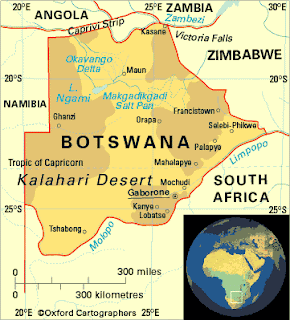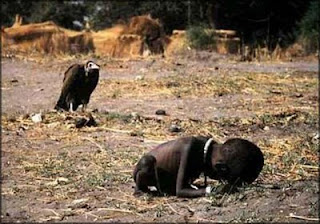
I got to Dulles airport at 3:15 PM where after a tearful goodbye from the family I went through security and to my gate where I would first fly to Atlanta and then Johannesburg, South Africa. Fortunately, Meg, a girl in the group was also flying from Dulles and conveniently enough sat next to me for both flights.
Sitting at Dulles airport I finally get a chance to actually think about the trip itself. The last few days have been a blur of visiting families and friends and packing that I haven’t spent anytime really reflecting on the fact that in a few short days (now a matter of hours) I will actually be flying to Africa. The realization now is both exciting and intimidating. I find myself in a daze just trying to wrap my mind around just the idea that I’m actually going, not even beginning to try and comprehend what it would be like when I get there and what I would see and experience along the way.
Prior to the trip I can only base my expectations on the two stereotypical views of Africa present in my stream of consciousness. The first is of the mythical, and very tribal notion of Africa inspired in kids by films like the Lion King. In my head all I can see are rolling grasslands and deserts and herds of elephants and gazelles marching gracefully across the earth that’s bathed in a glorious orange sunset. My concept of the people is very much based on the National Geographic magazines I’ve gotten lost in throughout my life (part of what has inspired me to travel around the world); I see people living in huts and living off of the land farming and hunting for food. Their habits are very foreign to me and they have strange piercings and jewelry and furs for clothing. I know rationally that this is a very outdated depiction of the people, and like the rest of the world Africa has gone through significant industrialization and urbanization in the last 100 years, but in my imagination Africa is still the stuff of classical fables and natural splendor, an ideal more than a reality.
The other stereotypical view I have is the depiction of Africa is on the complete opposite side of the spectrum, the Africa you see in newspapers and covered by the media, an mass of people starving and dying of disease, women and children caught in tribal warfare that mercilessly ravages entire villages and slaughters the innocent as part of the “cause.” This depiction is much more graphic and terrifying and while the prospect of seeing the affects of such a powerful disease as AIDS in the eyes and the day-to-day lives of the people is really frightening, I feel like its important as part of my growth as a human being. I can read about AIDS and its impact on Africa from my safe insulated bubble, but doing so would never really give me a full understanding of what it was really like to be living with a disease that is ultimately and painfully going to kill you, and up to that point you will be shunned and demonized from society for something that you may not even have had any control over. As a journalism major I used to dream of being a Pulitzer Prize winning foreign correspondent uncovering the atrocities to the impoverished in the third world and bring them to the forefront to gain the attention of the industrialized western world. Again it was a very idealistic dream of what my future would be, and as I continued to study journalism and read about foreign correspondents I began to realize what a toll being surrounded by that much pain takes on a person emotionally. The story that keeps running through my mind is about Kevin Carter, a photojournalist covering the genocide in Sudan. He was shooting pictures of refugees who had to walk miles to get water and suffered from severe dehydration and malnutrition/starvation. His Pulitzer prize-winning picture is of a young girl who is drastically underweight to the point where she looks near death who is crawling to the nearest place to get water with a vulture waiting behind her, knowing that death was imminent. As a journalist you face the ethical conundrum of staying an objective observer and wanting to help the dying girl because, after all, you are still human and can’t bear to see that much suffering. The photojournalist was told not to help the refugees because the need was too great and if you help one person others will come asking for help. Still, I can only imagine how agonizingly painful it must have been to see a girl dying and do nothing to help. Ultimately the journalist committed suicide because what he had witnessed was too devastating and left him believing that the world was an evil place and that life was meaningless and futile. I’d like to think that I’m stronger than that and that I will be able to remain hopeful despite being surrounded by suffering. This is part of the reason I’ve shifted my future ideal job from foreign correspondence to working for international nonprofits/NGOs. It is not enough for me to cover the problems, I want to be an active part of the solution so that I don’t feel like the suffering of millions of people is being ignored by selfish westerners who choose to insulate themselves from the real world. This is what influences the other half of my view of Botswana specifically and Africa in general. It will be interesting for me to see how AIDS manifests itself in society and what its like interacting with people with the disease. I’m afraid that my first instinct will be to remain distant even though I’m well aware that the disease can’t be transmitted through physical contact alone and it is one of my serious goals to push myself out of my comfort zone and be very open to the culture and the people. I want to challenge the common belief that the people of Africa are forgotten about and disregarded by Americans.

The flight to Atlanta was an hour, but the flight to Johannesburg was 15 hours and a 15-hour flight is a test of patience; patience in those around you, patience in the flight attendants and patience in yourself, especially when sleep doesn't come easy and you spend most of those 15 hours awake. Fortunately, Delta (which apparently now flies all over the world) provided excellent entertainment options to help pass the time.
Finally, after 12 hours I woke up and looked out the window and all I could see for miles was desert. It was unlike anything I had ever seen before while flying, kind of like looking at the surface of another planet. I'm not really sure what I expected, but I certainly didn't expect the land to be so desolate. Things quickly changed as we approached Johannesburg, which, basked in a glorious orange sunset, could easily be mistaken for any number of mid-size US cities with its bright lights and suburban neighborhoods.
When we finally landed around 5 PM (Central Africa is 6 hours ahead, as indicated by the clocks on my blog) the first thing I was struck by was how everything as in English and everyone spoke English pretty fluently (albeit, with a heavy African accent). I guess I've always associated international traveling with not being able to understand anything/anyone so to feel so secure about where I was going was both comforting and unsettling considering I was in such a foreign place. The other thing I noticed was that there were advertisements for the FIFA World Cup, to be held in South Africa in 2010 (a picture is below). I sort of wish that I had taken this trip next year so I could at least briefly be a part of all that craziness.

After getting settled into the hotel for the night I had my first meal in Africa, a hamburger and a tall frothy Castle beer (a local brew). It was comforting after such a a long flight, but in a way I felt kind of silly traveling this far and eating distinctly American dinner. Oh well, I guess I have the entire trip to try new things. Tomorrow morning we wake up bright and early for the 1-hour flight to Gaborone (the capital of Botswana). Sleeping now will be tough though because I'm so excited for what lies ahead.








No comments:
Post a Comment